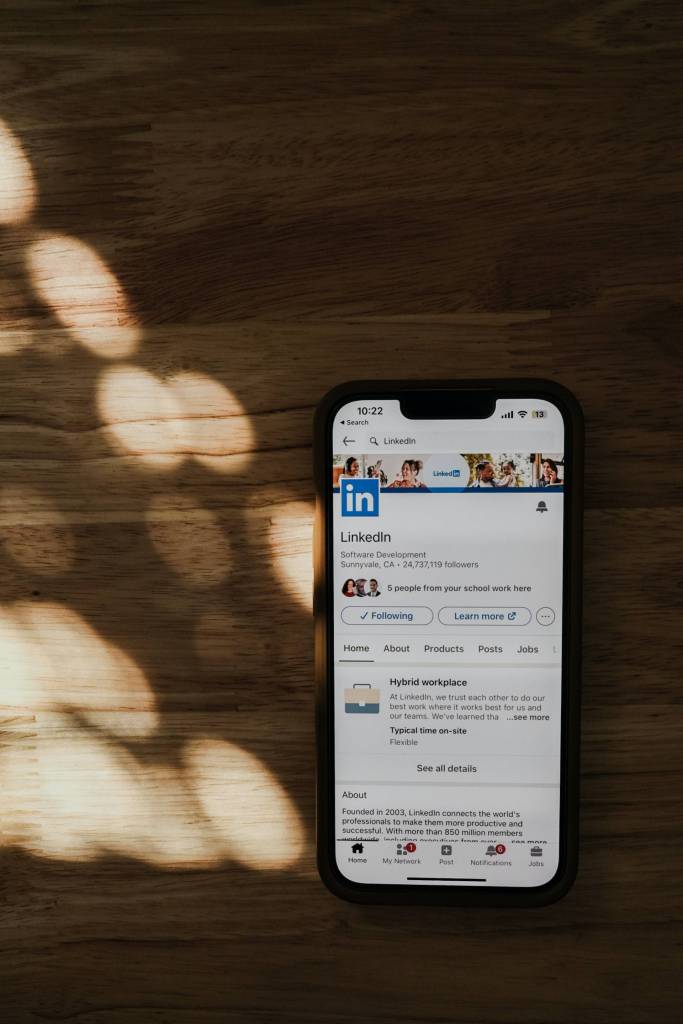Act and think like an insider to get hired! — Beth Kuhel
How can you possibly know what the hiring manager is thinking and how could this help you if you did? The answer is, you can’t know exactly what he or she is thinking but you can get a glimpse into their mindset, values, needs and expectations by doing a little research. LinkedIn ambassador, Lindsey Pollack, offers fantastic advice on how to leverage LinkedIn. In one of her recent webinars, LinkedIn Job Search Fundamentals, Lindsey shares tips on how to learn about people in a firm; Searching in the company for specific people or within certain areas of expertise you can find details about a person’s employment background, (including previous employers, groups they belong to, their education, career path and the expertise and skills that are valued most by their firm).
How to prepare for your interview when you have a “Warm Contact?”
I recently coached a college graduate, we’ll call Sue, who is seeking employment in a multinational food and beverage company. A cousin of hers happened to work there and was willing to provide her with information about the manager’s personality, his strengths and challenges and the firm’s culture. This made it easy for Sue to learn the answers to a few of her key questions e.g. what qualities does this person like in a new hire and what are his pet peeves? Knowing the answers to these questions ahead of time enabled Sue to avoid making foolish statements in her interview and helped her focus her answers in line with the attributes he was seeking in a new hire. Sue was able to make an authentic statement about specific strengths and experiences she had that he’d view as desirable. Needless to say, her interview went very well.
What do you do if you don’t know anyone in the business?
A common scenario that prospective new hires face is not knowing anyone personally who works in a company where they’re interviewing. This requires you to be a bit more creative and engage in some research. But the cool thing to know is that with the right effort you can learn a lot about a person’s professional life and about the firm that will be relevant and useful information in your interview. And it’s completely reasonable to do this homework prior to your interview.
You can find the answers to many pertinent questions about most hiring managers through a strategic search on LinkedIn. First, assuming you know the name of the person or his/her job title, you can search them on LinkedIn. You can make your settings anonymous if you prefer they can’t see you’ve been looking at their profile. But there is nothing wrong with checking a person’s profile to learn more about them and their job as long as you do so in a respectful and professional way. Ideally it’s your research that could help you become a more empathetic candidate! Your goal should be entirely about becoming more knowledgeable about them so you can see where you fit in and how you can contribute there.
Next you can look to see what skills and expertise they’ve posted and what they say about themselves in their summary. Some will refer to their “core competencies or core strengths” and this also lets you know what skills are relevant to their job and possibly yours as well.
Then check the groups they belong to and join those groups. You can ask to connect with people in the group and search for others who are in the department you’re interested in. See their profiles and select aspects of those you esteem to adapt and use in your profile. Look for “keywords” they use and borrow them so you’ll have a better chance in being found in a hiring manager’s search.
See the category “interests” and “careers” under the company section and learn more about current issues and the activity others are talking about in the firm: When you can draw on this information in your interview you’ll sound more like an insider. Lindsey also suggests that you identify and borrow relevant key words from a model profile that are applicable to your experience. Craft your profile wisely including these words but make sure not to over do it by cutting and pasting their profile into yours. In other words, use your common sense and design your profile so it sounds like you and reflects your best qualities tied to the job you want.
The next step to take, now that you have identified employees in that department, is to ask to connect with a few of them. It’s likely that at least one person will accept your request assuming your education and interest aligns with theirs. You can personalize your request letting them know you’re interested in applying for a position in their firm and that you would greatly appreciate it if they could answer a few questions you have about the firm and their experience there. Most people love talking about themselves and will appreciate your honesty in requesting their mentoring.
Once they agree to connect with you, send them a message via LinkedIn request a brief informational interview and ask when it would be convenient for them to speak with you prior to the date of your actual interview. Make sure to be respectful and appreciative for his or her time, as you don’t want to offend or annoy anyone who could potentially bad mouth you prior to your big day.
Here’s a sampling of questions you could ask your contact person that could help you in getting a sense for the interviewer’s personality and his or her needs and expectations:
- How long has this person been with the company?
- Where did he work before?
- What affiliations to groups/associations does he have?
- What’s his personality like…does he enjoy sports, travel, reading, polo, scuba or chess?
- Where did this person spend his formative years?
- What type of person is he looking for? Describe what you think he would consider an ideal candidate.
- What specific problems are they trying to fix?
- What’s the gap they’re trying to fill?
- What are his work related skills, expertise and interests?
The answers to these questions will give you a window into the hiring manager’s mind and help you steer the interview so you highlight your unique abilities, skills and interests that align with his or hers. Your answers in every interview must be authentic, as you never want to misrepresent yourself! The advantage of knowing more about the firm and people who work there is that you will have a better idea of which skills, interests and abilities to focus on that will match their interests: You can select your most relevant skills, expertise and personal interests so you make yourself memorable to them and tailor your pitch to their needs and their unique culture.
Now you can go into your interview confident that you know something about the firm, something relevant about the people in the department and something about the hiring manager that you relate to. All things being equal, the candidate who shows they took an interest in learning about the firm and the people who work there as well as their products/services and current issues, will get hired.
The reality is this shows emotional maturity and that you have a sincere interest in that firm. It also shows that you’re not just going on interviews wherever you can get them. Companies invest in their employees and the best companies make it clear in the job description the precise skills, background and expectations for the prospective new hire. The savvy candidate will carefully review the position and everything else about the company (and its employees) so when it’s time for your interview, you have knowledge and confidence to answer questions like you’re an insider so you get hired!












